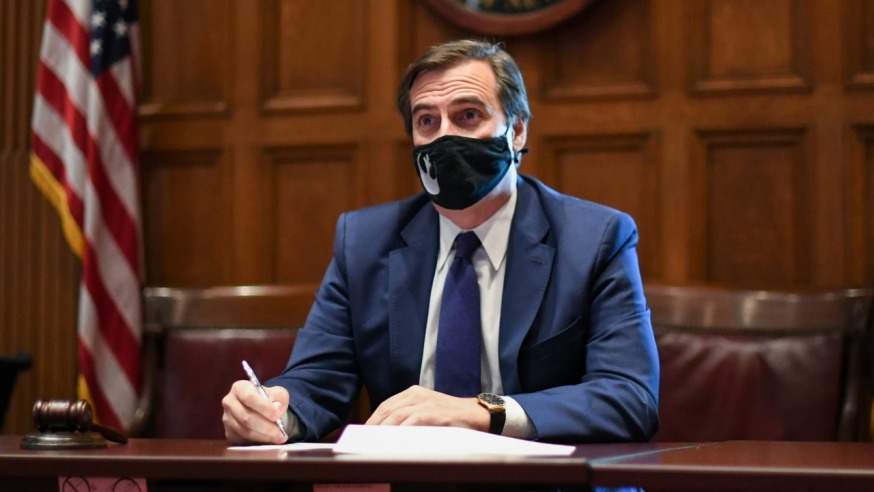
State Sen. Michael Gianaris (NY Senate Media Services)
Feb. 3, 2021 By Michael Dorgan
State Sen. Mike Gianaris is calling on the governor to provide a $2.2 billion relief package for residential tenants and small landlords in the upcoming state budget.
Gianaris penned a letter to Cuomo on Feb. 1 stating that many tenants are suffering under the economic crisis and face the possibility of being evicted if they do not receive financial aid.
“Millions of our fellow New Yorkers are currently struggling to make ends meet and wondering how they will keep a roof over their heads,” Gianaris wrote.
The lawmaker wrote that the state cannot rely on the federal government to sufficiently bail out tenants and small landlords – such is the urgency of the matter – and wants Cuomo to establish a Housing Stability Relief Fund in the budget.
The fund would be financed by raising taxes on the wealthy and by setting aide income that the state has on hand. He said that the fund would be enough to forgive the rent obligations of 1.3 million renter households.
“Those who have thrived over the last year should be asked to contribute to New York’s recovery, and our richest residents have certainly thrived, growing their wealth exponentially during the pandemic,” Gianaris said.
He added that any money the state receives from the federal government in the future could also be put toward the fund.
The governor has already released two budget proposals: one is based on the state receiving a $15 billion bailout from the federal government and the other – which Cuomo dubbed the “worst-case scenario” – would anticipate New York getting $6 billion.
The state legislature must approve the budget by April 1.
Gianaris, who has been a vocal supporter of the #CancelRent movement, said that the Housing Stability Relief Fund would be used to pay small landlords directly in order to cover the arrears of their tenants.
He wrote that this system would be the fastest way to administer the aid, adding that mom and pop landlords would be prioritized during the distribution process.
“A fund like this must center on equity, supporting small landlords, co-ops, non-profit affordable housing providers and higher-need communities first,” he wrote.
“Inherent in that equity is the fact tenants and small landlords were some of the hardest-hit New Yorkers and were largely left behind by actions of the previous [Trump] administration.”
The move was welcomed by the housing advocacy group Housing Justice for All. The group noted that the date of Gianaris’ letter marked the 11th rent payment month since the onset of the pandemic.
“And for the 11th month in a row, there is no aid for the tenants and struggling landlords,” HJFA Coordinator Cea Weaver said.
One Comment

Gianaris is too stupid to understand that any such action would just raise rent prices higher causing even more problems? I like how for the past 20 years landlords were jacking prices up and noone saw a problem. Boomers are renting apartments in JH for 2000$ a month that they bought for 20k in late 90s. And they haven’t even invested to fix them up well. They gonna be fine if they don’t get free money for a few months.